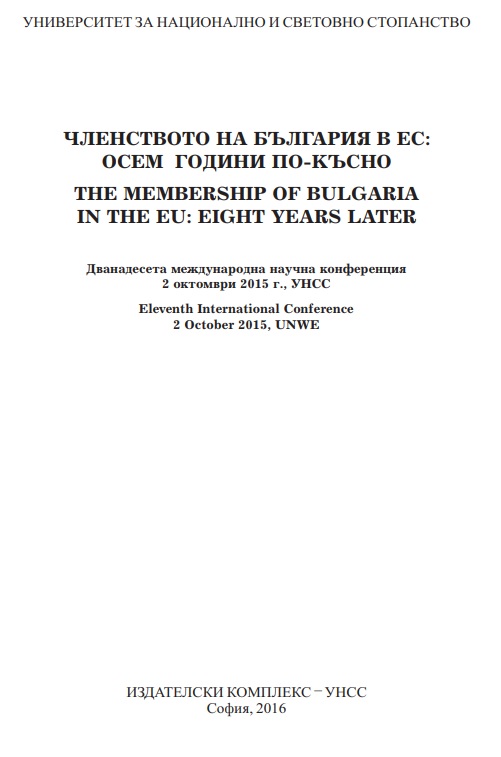Парламентарно измерение на първото българско председателство на съвета на Европейския съюз – предизвикателства и възможности
Parliamentary Dimension of the First Bulgarian Presidency of the Council of the European Union - Challenges and Opportunities
Author(s): Mladen Lambev, Lidiya Simova
Subject(s): Politics / Political Sciences, Politics, Public Administration, EU-Approach / EU-Accession / EU-Development
Published by: Университет за национално и световно стопанство (УНСС)
Keywords: Bulgarian Presidency; Council of the European Union; Presidency of the Council; Parliamentary Process
Summary/Abstract: Following the adoption of the Lisbon Treaty in 2009, the national parliaments of the Member States of the European Union have been granted enhanced competencies to work on emerging issues on the European agenda. With the introduction of the new ‘yellow’ and ‘orange’ card procedures, as well as the strengthening of interparliamentary cooperation through a number of mandatory and complementary international conferences, the Parliamentary dimension has become an integral and essential part of the rotating Presidency of the Council of the EU. As it is well known, the Presidency of the Council covers a period of 18 months and is in a "Trio" format - six months for each of the three Member States pre-approved by the European Council. Bulgaria was appointed to chair the Council of the EU in the second half of 2018 and to complete the Trio after Great Britain and Estonia. The events surrounding Brexit, however, have led to necessity of shifting the pattern, as a result of which our country will take over its leading role on January 1, 2018 (6 months earlier than planned). In this context, the paper hereby aims at outlining some of the key challenges and opportunities the National Assembly of the Republic of Bulgaria faces on the doorstep of the first for our country Presidency of the Council of the European Union. They mainly concern issues of interinstitutional, political, economic, administrative-organizational, informational and communication nature. The adopted approach, without claiming to be fully detailed, is aimed at achieving clarity in the formulation of problems and finding the appropriate way to solve them.
Book: Членството на България в Европейския съюз: осем години по-късно
- Page Range: 349-356
- Page Count: 8
- Publication Year: 2016
- Language: Bulgarian
- Content File-PDF

